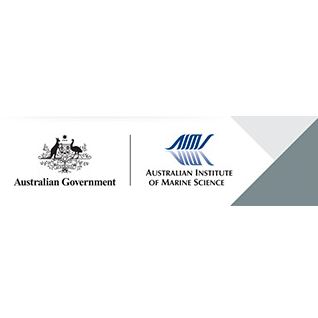Full description
Given the critical role of microbes in host health, understanding microbial contribution to transgenerational plasticity is essential for generating realistic predictions of coral reef responses to future climate. Through a 4-year multigenerational experiment, the microbial dynamics in the tropical sea urchin Echinometra sp. A were explored under temperature and pCO2 levels predicted for years 2050 and 2100 (RCP 8.5).Publication of this study:
Marangon, E., Uthicke, S., Patel, F., Marzinelli, E. M., Bourne, D. G., Webster, N. S., & Laffy, P. W. (2023). Life-stage specificity and cross-generational climate effects on the microbiome of a tropical sea urchin (Echinodermata: Echinoidea). Molecular Ecology, 00, 1–16. https://doi.org/10.1111/mec.17124
Realted papers from the same experimental study (urchin physiological and behavioural performances):
Uthicke, S., Patel, F., Karelitz, S., Luter, H., Webster, N., & Lamare, M. (2020). Key biological responses over two generations of the sea urchin Echinometra sp. A under future ocean conditions. Marine Ecology Progress Series, 637, 87–101. https://doi.org/10.3354/meps13236
Karelitz, S., Lamare, M., Patel, F., Gemmell, N., & Uthicke, S. (2020). Parental acclimation to future ocean conditions increases development rates but decreases survival in sea urchin larvae. Marine Biology, 167(1), 2. https://doi.org/10.1007/s00227-019-3610-5
Uthicke, S., Patel, F., Petrik, C., Watson, S., Karelitz, S. E., & Lamare, M. D. (2021). Cross-generational response of a tropical sea urchin to global change and a selection event in a 43-month mesocosm study. Glob Change Biol, 27: 3448-3462. https://doi.org/10.1111/gcb.15657
Lineage
Maintenance and Update Frequency: notPlannedNotes
CreditLaffy, PW. AIMS
Webster, NS. AIMS, University of Queensland and Australian Antarctic Division
Marzinelli, EM. The University of Sydney and Singapore Centre for Environmental Life Sciences Engineering
Patel, F. AIMS
Marangon, E. James Cook University (JCU), Australian Institute of Marine Science (AIMS) and AIMS@JCU
Bourne, DG. AIMS
Uthicke, S. AIMS
Modified: 19 09 2025
text: westlimit=146.80755615234378; southlimit=-18.361857147725765; eastlimit=146.80755615234378; northlimit=-18.361857147725765
Marangon, E., Uthicke, S., Patel, F., Marzinelli, E. M., Bourne, D. G., Webster, N. S., & Laffy, P. W. (2023). Life-stage specificity and cross-generational climate effects on the microbiome of a tropical sea urchin (Echinodermata: Echinoidea). Molecular Ecology, 00, 1–16. https://doi.org/10.1111/mec.17124
doi :
https://doi.org/10.1111/mec.17124![]()
Raw 16S rRNA gene sequencing data Bioproject PRJNA1013433
uri :
https://www.ncbi.nlm.nih.gov/bioproject/PRJNA1013433![]()
R scripts for data analysis
uri :
https://github.com/emarangon/Cross-generational-climate-effects-on-the-urchin-microbiome![]()
- global : b5cbcbcd-0b19-4344-9aa8-7bbdd9201eb7


